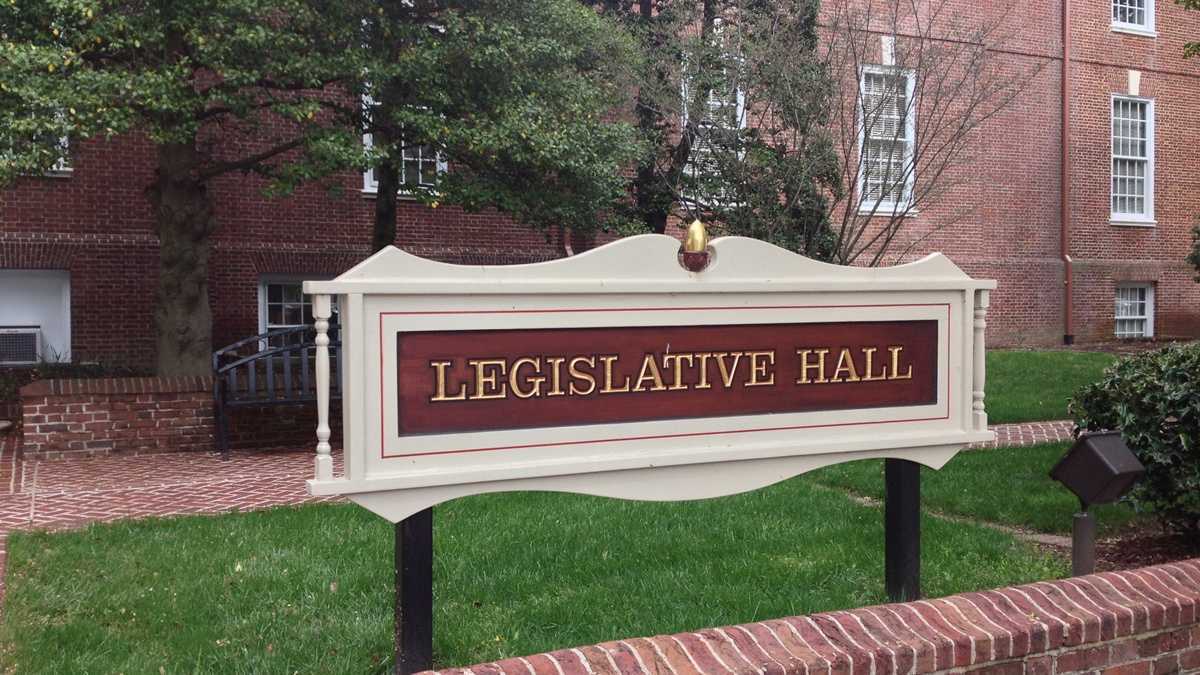Delaware legislators pass legislation calling for transparency from law enforcement

(FILE/NewsWorks)
Delaware legislators passed a measure calling for transparency from law enforcement.
Delaware senators passed legislation Thursday that allows for more transparency from a special police fund that collects money from forfeitures.
Law enforcement has no statutory obligation to publicly account for its forfeiture activity because the Special Law Enforcement Assistance Fund, also known as SLEAF, which distributes seized assets to police departments, is not considered a public entity and is not subject to Delaware’s Freedom of Information Act.
If signed by Gov. Jack Markell, D-Delaware, the legislation sponsored by Rep. John Mitchell, D-Elsmere, will remove SLEAF from the list of agencies exempt from FOIA requests, making records and proceedings of that fund subject to the state’s existing FOIA statute.
However, the bill also creates a process allowing law enforcement agencies to determine which applications for SLEAF funds will be made public and which will not.
On Thursday, senators passed legislation almost unanimously with one senator not voting.
Opponents of the current system of SLEAF say the public should know how much money is put into the fund and what it is being spent on, which also would prevent any corruption within law enforcement and government.
Mitchell’s legislation is an important first step to making civil forfeitures more transparent, said Claire Snyder-Hall, program director for Common Cause, a non-partisan grassroots organization fighting for open, honest government.
“The legislation would add some level of transparency to the SLEAF process, where it’s determined how funds are allocated,” she said. “That would be positive thing because citizens could see how this program is functioning. We’re happy to see some movement in the right direction.”
However, Snyder-Hall said her organization also would like to know who is authorized to make the seizures, and how much is being seized. She said she’s also concerned about the measure in Mitchell’s legislation that allows SLEAF, made up of a state prosecutor and representatives from local law enforcement agencies, to decide if applications should be part of public record.
“We think it goes in the right direction, but not far enough,” Snyder-Hall said.
During Thursday’s vote Sen. Colin Bonini, R-Dover, who also has introduced legislation related to civil forfeitures, said he too is concerned SLEAF can determine what can be public information and what cannot.
“If people want me to be transparent, do I get to be the one who decides what needs to be transparent?” he said.
Attorney General Matt Denn, who was called as a witness, said a person who wants to challenge SLEAF’s decision to keep information private can go through an appeals process through the Deputy Attorney General’s office.
Bonini’s legislation would prevent law enforcement from seizing a person’s property if he or she has not yet been arrested or convicted of a crime.
The bi-partisan legislation co-sponsored by Sen. Bryan Townsend, D-Newark, and Rep. Paul Baumbach, D-Newark, aims to eliminate the state’s civil asset forfeiture system and replace it with criminal forfeiture.
In their report “Policing for Profit,” the Institute for Justice issued Delaware a D- rating for its civil forfeiture laws, claiming the state has some of the worst in the country. The report states Delaware’s law automatically assumes seized property is forfeitable unless an owner can prove by a preponderance of the evidence it is not.
Law enforcement can seize a person’s cash, car, home or other assets, sell it and use it to fund agency budgets—even before charging the person with a crime.
Bonini’s legislation would require a criminal conviction before the state could retain an individual’s assets. Bill sponsors say it would standardize forfeitures across all crimes, simplify procedures and reduce incentives that “distort policing priorities.”
Denn said the majority of the funds are from drug busts. In one year, SLEAF dispersed $167,000 of the fund, he said, and the majority of that went to the state’s witness protection program.
“My conversations with law enforcement agencies is that they want people to know what the money is being used for,” Denn said. “If people saw what the money is being used for they would be very supportive of it.”
Bonini thanked legislators for introducing this bill that he believes is a step in the right direction. However, he said he’s strongly against the government seizing another person’s property before being convicted of a crime.
“I have tremendous faith in our law enforcement. But just because it’s not abused doesn’t mean it’s the right thing to do,” Bonini said. “I think this process creates a perverse incentive where we’re funding activities based on seizing things. I do want to support this bill, but I’m concerned with where the money comes from.”
WHYY is your source for fact-based, in-depth journalism and information. As a nonprofit organization, we rely on financial support from readers like you. Please give today.





